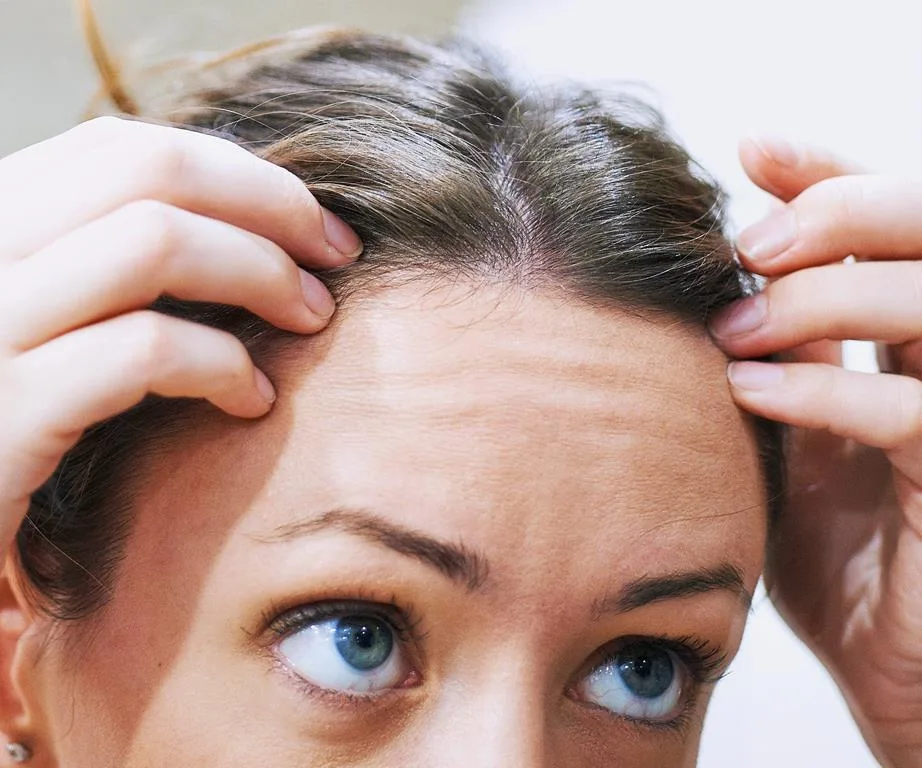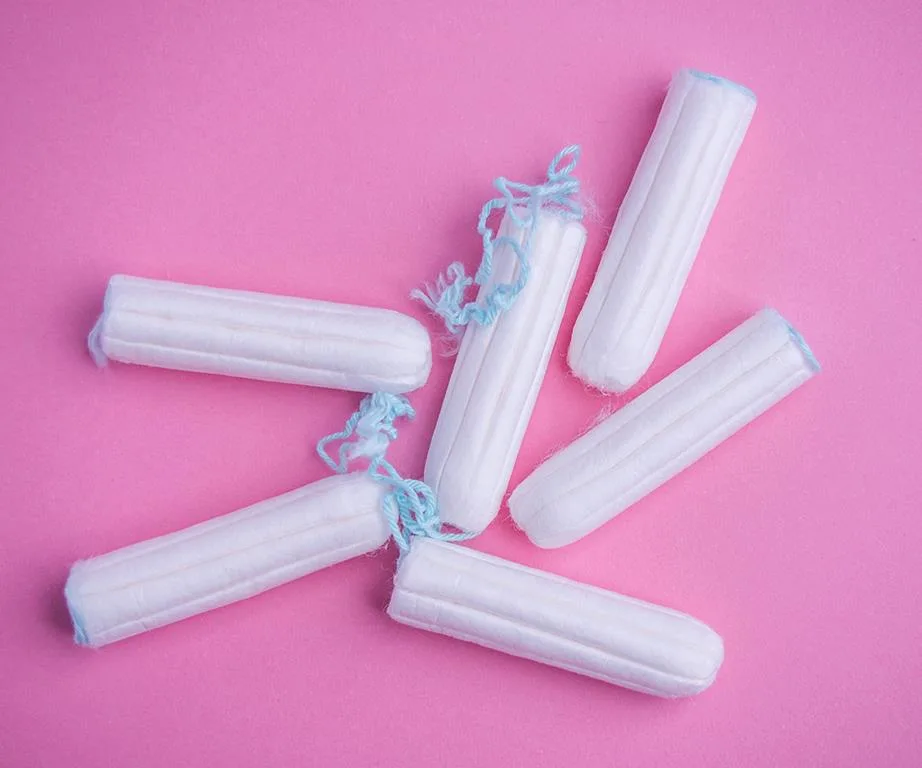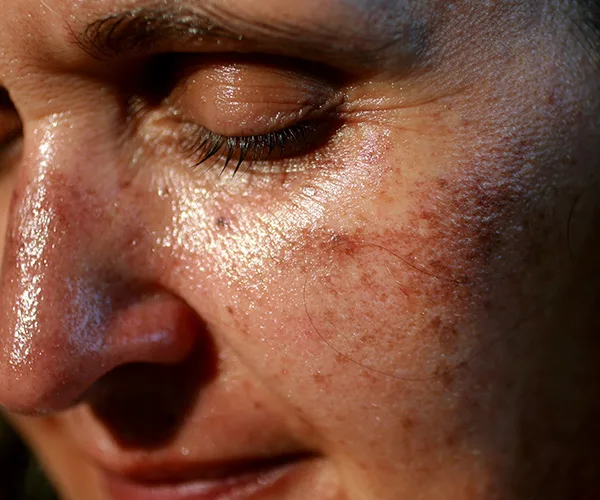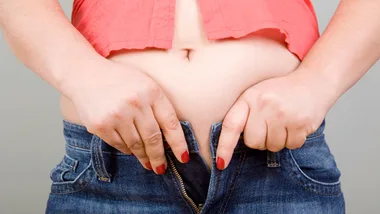When we think of hormones, it’s easy to think back to our teenage years when pimples were our biggest drama, or pregnancy when mood swings and cravings are out of control.
But up until menopause, women have a daily relationship with their hormones, and while for some it can be relatively drama-free, for others, they can be a right pain.
We at Now To Love had a chat with Dr Libby Weaver, one of the country’s leading nutritional biochemists about the tell-tale signs you could have a hormone imbalance, and what you can do to help yourself.
1. Your skin is breaking out
If you’ve noticed a few pimples or if you’re experiencing acne, it could be because of what’s going on inside. Dr Libby says that classic signs your sex hormones are out of balance include pimples along the jaw line or on your chest or back.
“At puberty when sex hormone levels first increase, that increase is sebum production. So it’s the elevation in the blood of the sex hormones that increases the release of sebum from the sebaceous gland,” she says.
But as we have bacteria living all over us all the time, when you produce more sebum, it gives the bacteria more to feed on, so they then multiply in numbers.
“Then we feel like our skin is a bit congested. Pimples or pustules could form or it just might feel a bit lumpy or little cysts might begin to appear,” she adds.
READ MORE: THIS is why it’s time to harness your hormones.
2. Your hair is falling out

Have you noticed your part getting wider?
If you’ve ever stood in the shower and thought about how much hair you’re losing, that tends to be normal. But if you’ve noticed that it’s coming out in clumps or you’ve noticed that the part in your hair has started to get wider, that can be a sign that your hair’s starting to thin and you’re losing it quicker than you can regrow it.
“One of the common hormone imbalances linked to that is when your prolactin levels are elevated,” says Dr Libby.
“Prolactin is the sex hormone that we usually only make when we’re breastfeeding but these days, more and more younger women are making it when they’re not pregnant or breastfeeding.
“When you have high levels of prolactin, it can lead to elevated levels of androgen which are male sex hormones and with that elevation in androgen, then comes that head hair loss so that’s another symptom that the sex hormones need looking at,” she adds.
3. Your menstrual cycle is a mess

Your irregular periods could be linked to a hormone imbalance.
20 per cent of Australian women suffer from polycycstic ovarian syndrome and one major symptom is irregular periods which means irregular ovulation. And when you ovulate irregularly, your progesterone levels are low.
“Progesterone plays a role reproductively but it plays a lot of other biological roles: it’s a very powerful anti-anxiety agent, it’s an antidepressant and it’s a diuretic so it allows us to get rid of excess fluid,” says Dr Libby.
“Some women across the menstruation years don’t make enough progesterone and then for others that kicks in at perimenopause when they stop ovulating regularly. Across those perimenopausal years, oestrogen tends to surge and then drop. When it surges you get really hot and irritated and when it drops your mood goes very low and of course one of the main symptoms for menopause these days is the hot flushes.”
READ MORE: 8 reasons why your period is late that aren’t pregnancy.
4. You have skin pigmentation problems

Dark spots? It could be because of too much oestrogen.
Skin pigmentation issues can arise due to a number of reasons, whether that’s too much time in the sun or extreme stress. But quite often, it’s due to an excessive amount of oestrogen and not enough progesterone.
“Women might notice that they get some pigmentation when they go on The Pill or when their hormones are changing and their PMT might get worse, for example, and quite often that’s related to too much oestrogen,” explains Dr Libby.
RELATED: Are hormones impacting your body shape?
How can we look after our hormone health?
So is this just a case of bad luck or is there something we can do to look after those chemicals buzzing around in our bodies?
Well Dr Libby says there are two things that can make a big impact.
In Australia, less than 10 per cent of adults are eating their recommended five serves of vegetables every day and while it’s a boring message, we need to eat a lot less junk food and eat our greens for good sex hormone balance and healthy liver function.
“The Brassica family of vegetables which include broccoli, cauliflower, kale and Brussel sprouts contain substances beyond their vitamins and minerals as they have phytochemicals in them that help to stimulate the part of the liver that’s needed to deal with oestrogen,” she says.

Mum was right, eat your greens!
Another way to look after our hormones is to stress less, though of course that’s easier said than done. When humans roamed the earth thousands of years ago, our adrenaline levels would rise when our lives were in actual danger.
“These days, most of our stress is psychological so when we produce adrenaline, the body hasn’t yet learned to discern the adrenaline that we make when our life is literally in danger and the adrenaline that we make because of our perception of pressure and emergency related to our to-do list, our email inbox or running late or worrying about what other people think of us,” explains Dr Libby.
One top tip for managing your stress, though, as easy as it sounds, is to practice breathing diaphragmatically.
“When you do your yoga breathing it communicates to your body that you’re safe because you’d never be able to breathe like that if your life was truly in danger. So when you breathe diaphragmatically it lowers stress hormones more effectively than just about anything.”
As always, if you think you have a hormone imbalance or any other medical problem, speak to your GP.

If it’s good enough for Meghan, we’ll give yoga a try!



